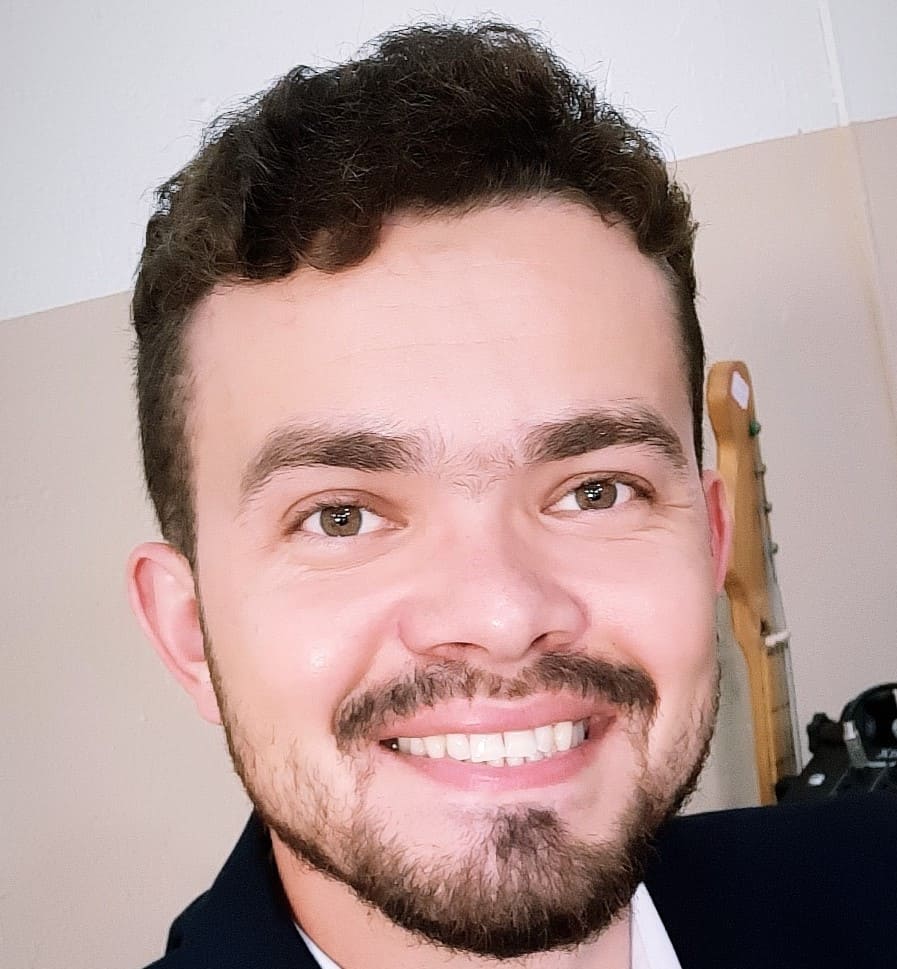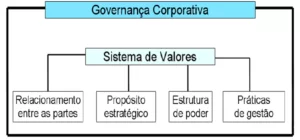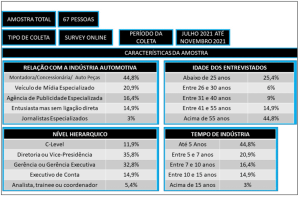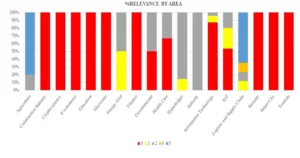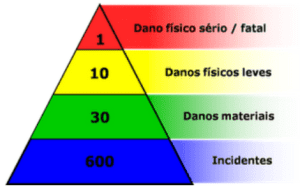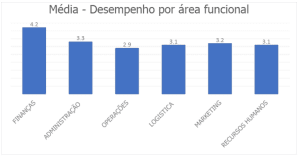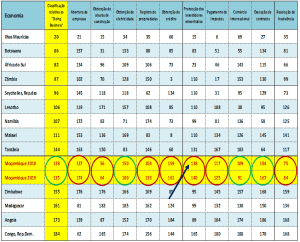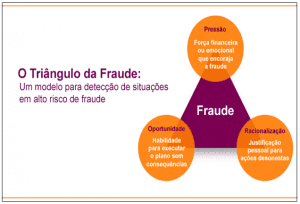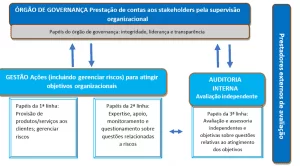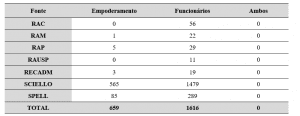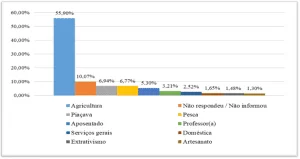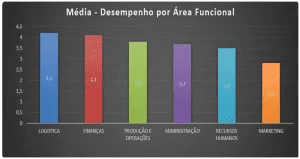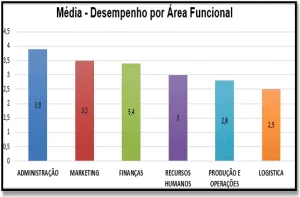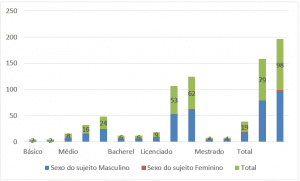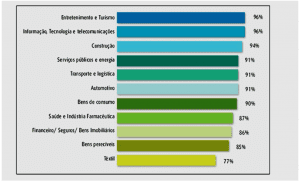ORIGINAL ARTICLE
PASSERINI, Marcos Levi [1], CALVO, Erica Pavi [2], SEGANTIN, João Angelo [3]
PASSERINI, Marcos Levi. CALVO, Erica Pavi. SEGANTIN, João Angelo. Main challenges and opportunities for management through the pandemic generated by COVID-19: an analysis in the region of São José do Rio Preto – SP. Revista Científica Multidisciplinar Núcleo do Conhecimento. Year. 06, Ed. 11, Vol. 07, p. 116-134. November 2021. ISSN: 2448-0959, Access link: https://www.nucleodoconhecimento.com.br/business-administration/challenges-and-opportunities
ABSTRACT
The pandemic generated by COVID-19 has caused changes in the population’s way of life, changing some customs and creating others, and with its consequences enhanced, in part by the political and economic instability in which the country was already facing, hundreds of micro and small companies, and even some large ones, have closed their doors, thus resulting in an increase in unemployment. In this way, many people had to reinvent themselves to keep their venture open or even ensure the livelihood of their families during the pandemic. Some even managed to increase their profits with new business opportunities. In this context, this article aims to present the main challenges and opportunities for business management due to the pandemic generated by COVID-19 in the region of São José do Rio Preto – SP. Conducted through a bibliographic research and aiming to confront theory and practice with an online field research, respecting the WHO distancing criteria, this article identifies how the society located in the region of São José do Rio Preto, in interior of São Paulo, has been dealing with this situation and highlights the female role in the face of the difficulties encountered.
Keywords: Management, Crisis, Challenges, Opportunities.
1. INTRODUCTION
In the year 2020, there was a scary national and global scenario due to the pandemic and the chaos generated by COVID-19, due to the emergence of the SARS-Cov-2 virus, popularly called the “new coronavirus”.
The pandemic has profoundly impacted people’s lives, radically transforming their daily lives, habits and attitudes, even more so with social isolation, in which today’s human being is not used to living.
The social, economic, political and cultural impacts are enormous. Some have disastrous consequences and no return. Among them, the main and most painful impact is the impact of the loss of human life.
And how to preserve life, maintain mental health and still sustain the home economy and have access to essential goods such as food, medicine, health system, transport and education? These are challenges that the population needs to face in order to survive the chaos that is experienced.
However, it is precisely in the face of adversity that opportunities arise, even though it is a challenge to find them. In this way, the present work seeks to identify how people are managing and reacting to challenges and possible opportunities in the face of the current unprecedented chaotic situation.
This article aims to present the main challenges and opportunities for business management due to the pandemic generated by COVID-19 in the region of São José do Rio Preto – SP.
2. METHODOLOGY
Fonseca (2002) explains the meaning of methodology through its etymological origin:
[…] methodos significa organização, e logos, estudo sistemático, pesquisa, investigação; ou seja, metodologia é o estudo da organização, dos caminhos a serem percorridos, para se realizar uma pesquisa ou um estudo, ou para se fazer ciência. Etimologicamente, significa o estudo dos caminhos, dos instrumentos utilizados para fazer uma pesquisa científica (FONSECA, 2002).
Thus, for the development of the present work, bibliographic research was used, which, according to Gil (2010), is research raised with the support of bibliography already published in the form of books, periodicals, theses, newspapers, congress proceedings, etc., which provides the researcher with access to materials already produced on the subject to be studied.
However, in order to confront theory with practice, a field research was carried out, which, according to Gil (2010), corresponds to an experienced reality of a situation, as it is carried out based on the actions, attitudes or thoughts of a specific group, that will be asked to inform what happens in that specific reality.
As for the approach to the problem, the present research is developed by the quantitative method, which, according to Richardson (1999), is characterized by the numerical results of the proposed study, to analyze the behavior and opinion of individuals in a certain group.
Data collection, carried out during the pandemic period, took place online, as a way to avoid physical contact and respect social isolation. It was done through a questionnaire with 14 multiple-choice questions, through the Survio portal.
The questionnaire was disseminated through social media, direct sending via WhatsApp, the Facebook page of Monte Aprazível news “O portal da cidade aprazivelense”, Radio Difusora Aparecida 105.7 FM from Monte Aprazível and FAECA Dom Bosco of Monte Aprazível.
3. DEVELOPMENT
4.1 MANAGEMENT
According to the Dicio dictionary (s.d)[4], the word “management” means: “s.f”. Action to manage, administer, govern or direct public or private business” administration, management, is seen as a means of organization that can be applied in several areas, whether public, private or mixed, its main task, through managers, is to lead teams, sectors and groups to achieve maximum performance within of a process, avoiding waste.
4.2 CRISIS
The word “crisis” corresponds to a sudden change or unexpected change in a situation, an environment or a regularly experienced normality, which needs immediate and urgent measures and solutions.
According to Luecke (2007):
Crise é uma mudança repentina ou gradual que resulta em um problema urgente que deve ser abordado imediatamente. Para uma empresa, uma crise representa qualquer coisa com potencial de causar danos súbitos e graves a seus funcionários, a sua reputação ou a seu resultado financeiro (LUECKE, 2007).
Thus, a crisis is a harmful event, most of the time unpredictable, that can have the most varied origins and that, if not managed and conducted properly, can result in serious damage to a company, people and for society at large, which is exactly what you see with COVID-19.
4.3 PANDEMIC
According to the WHO (2020), “[…] a pandemic is the worldwide spread of a new disease. The term is used when an epidemic – a large outbreak that affects a region – spreads across different continents with sustained person-to-person transmission.”
The WHO (2020), when defining a pandemic, does not address the issue of the severity of a disease, but only the geographical aspect of rapid spread. People, institutions, governments and the world, in general, are not prepared to face a pandemic, as it arrives in a sneaky and unpredictable way, causing panic, despair and chaos. The COVID-19 disease has clearly shown this in Brazil, and the Northwest region of São Paulo has been no different.
4.4 CHALLENGES
Challenges constantly arise in human life. If searched in the dictionary, there are several concepts of challenge, such as calling for a tournament, encouraging to do something that is difficult, fighting, fighting, etc. The challenge is an objective to be accomplished, which can be seen as a goal or an action plan to be executed, in which it is proposed to challenge obstacles to fulfill them.
The COVID-19 pandemic is clearly proving to be a challenge and showing that many are excelling, but others, unfortunately, are succumbing.
4.5 WHAT ARE OPPORTUNITIES?
The word “opportunity”, according to the Dicio dictionary (s.d), means: “Characteristic, condition of what is opportune, at the right time. Favorable circumstance for something to happen; […] Situation that is convenient or appropriate for an opportune circumstance.”
Opportunity is an opportune moment, a context (even in a bad situation) that reveals itself so that something happens in that situation, presents a chance, a benefit of achievement and growth.
4.6 REGION OF SÃO JOSÉ DO RIO PRETO
The region of São José do Rio Preto is the 8th administrative region of the State of São Paulo. Located in the extreme northwest of the State, it is formed by 96 municipalities distributed in 5 (five) government regions. It has almost 1,500,000 inhabitants and an area of more than 25,000.00 km². As it is one of the largest regions of the State, it was decided to narrow the research, covering the cities in which there are students studying under graduation at FAECA Dom Bosco, which are 22 cities:
Table 1 – Research Target Cities
| Adolfo | Macaubal | Nhandeara | São José do Rio Preto |
| Cosmorama | Magda | Nipoã | Sebastianópolis do Sul |
| Floreal | Mendonça | Nova Aliança | Tanabi |
| Gastão Vidigal | Mirassol | Nova Luzitânia | Ubarana |
| Jaci | Monte Aprazível | Planalto | União Paulista |
| José Bonifácio | Neves Paulista | Poloni |
Source: Author, 2020.
5. RESULTS
The survey was carried out in the cities mentioned in Table 1, through the link (https://www.survio.com/survey/d/pesquisa-faeca-dombosco-2020), made available by WhatsApp, through the Facebook page of Monte Aprazível Notícias “O portal da cidade aprazivelense”,by Radio Difusora Aparecida105.7 FM and by FAECA Dom Bosco, all from Monte Aprazível/SP.
The questionnaire was answered by 108 people, among which: 64.2% were female, 42.2% were between 18 and 29 years old and more than 50% of the public has a higher education level. post graduate.
Graph 1 – Gender of the participants

Graph 2 – Age group of participants

Graph 3 – Level of Instruction

Graph 4 – Professional occupation before Covid-19

The survey pointed out that 45% of respondents carried out an activity with a portfolio record before the pandemic; 26.7% were professionals or entrepreneurs; 16.5% worked without proper registration and 14.7% did not have a professional occupation. Which, given the high unemployment numbers in Brazil, even before the pandemic, is not such a frightening result, given that almost 50% of respondents were employed in a CLT regime.
When asked about the need to take extreme measures, such as dismissing employees or reducing expenses, more than 84% responded that they did not have employees or that they only reduced expenses; and more than 57% responded that they had not requested any benefit or financial assistance of any kind. These results show that, among the surveyed public, the pandemic scenario did not cause many changes.
Graph 5 – Took extreme measures to reduce expenses

Graph 6 – Did you request any benefit or financial assistance in the period? Was it enough?

About implementing new ways of earning a profit or income to compensate for the losses from the beginning of the pandemic, more than 61.4% said they had not implemented anything; 15.6% answered yes, but only managing to cover losses; and another 15.6% answered yes, they implemented it, made up for losses and still made a profit. These data are similar to the results above, in which, as a consequence of the number of employees in the CLT regime and of liberal professionals/entrepreneurs, some companies managed to maintain their income, even with a pandemic outbreak.
When asked about being able to undertake within their professional area, with new ideas and practices that could improve the production process, increasing profit or reducing expenses during the pandemic, 33% said yes, they were free to undertake; almost 30% answered yes, but without much freedom to do so or that help would be needed and 38.5% answered no, that the area does not allow entrepreneurship or that it is not necessary.
When asked if they would look for opportunities to undertake new businesses, knowing that after the pandemic there would be a gap for products and services, more than 25% answered no, that they are fine the way they are or that they do not want to start a business and 22 .9% answered yes, and that they would already be working on it.
Graph 7 – Implemented new ways to obtain profit or income

Graph 8 – They managed to undertake in their professional area. Increased profit or reduced expenses

Graph 9 – After this period of the pandemic, they will seek opportunities to undertake

Regarding the professional profile, 57.8% of respondents said they were dynamic and collective, while 14.7% said they were quiet and individualistic. 67% of respondents rated themselves as excellent or good in their ability to adapt (resilience) to current circumstances and 23% rated their ability as fair or poor. In the self-assessment, about putting oneself in the other’s shoes (empathy), the result was 93.6%.
Such results show a lot of positivism, which reflects a characteristic of the Brazilian people, of providing help and being welcoming in difficult times, such as in calamities and pandemics.
Graph 10 – Do you have a dynamic and collective profile or a quieter and individual profile

Graph 11 – Your ability to adapt

Graph 12 – Your ability to put yourself in the other person’s shoes at this moment

The pandemic generated by COVID-19 has affected the world in different ways, some overwhelmingly and others not so much. But the fact is that everyone was affected, having their lives and habits transformed, perhaps with no return to how it was before. So much so that, in the survey, only 9.2% of respondents believe that everything will return to normal with the end of the pandemic.
Almost half of respondents – 47.7% – believe that things will return to normal, but not as they were before. And 22.9% believe that nothing will be the same. Despite a slight pessimism inserted in this answer, when asked about the future, 80.9% say they are optimistic, reflecting a positivism that there will be a search for ways to adapt and fit into a new way of life.
Graph 13 – After the strain of COVID-19, everything will return to normal

Graph 14 – Opinion on the future

6. FINAL CONSIDERATIONS
Although the moment requires serenity and sensitivity, this research showed relevant data. 64.2% of the answers were given by the female audience, this result highlights a trend that is worldwide.
Female protagonism in a universe that for a long time was exclusively male, that of leadership. Whether in a domestic environment, in looking for ways to raise income to support her family, or in a corporate environment, using creative ways to keep her team or company running and even as a ruler of government, the woman shows that she has greater sensitivity in dealing with situations that require greater self-control and collective spirit.
Therefore, the challenges can be faced in two divergent ways, positive or constructive. Visualize an opportunity to get out of your comfort zone and move on, overcoming obstacles (positive) or feeling fear, intimidating and seeing only adversity (negative).
It takes courage (confidence and the ability to act positively and constructively in difficult and fearful moments) and resilience (learning to adapt) to face and overcome a challenge.
The disease of COVID-19 is being an interesting thermometer in demonstrating how people are facing challenges and dealing with opportunities during this pandemic and beyond.
REFERENCES
CRISE. LÉXICO. Dicionário de Português Online. 2021. Disponível em: https://www.lexico.pt/crise/. Acesso em: 16 nov. 2021.
DESAFIO. LÉXICO. Dicionário de Português Online. 2021. Disponível em: https://www.lexico.pt/desafio/ Acesso em: 14 jun. 2020.
FONSECA, J. J. S. da. Metodologia da Pesquisa Científica. Ceará: UECE – Universidade Estadual do Ceará, 2002.
GESTÃO. DICIO. Dicionário Online de Português. Porto 7 Gaus: 2020. Disponível em: https://www.dicio.com.br/gestao/ Acesso em: 07 jun. 2020.
GIL, A. C. Como elaborar projetos de pesquisa. 5ª ed. São Paulo: Ed. Atlas, 2010.
LUECKE, R. Tomando Decisões. 1ª ed. Rio de Janeiro: Ed. Record, 2007.
OPORTUNIDADE. DICIO. Dicionário Online de Português. Porto: 7 Graus, 2020. Disponível em: https://www.dicio.com.br/oportunidade/ Acesso em: 14 jun. 2020.
PANDEMIA. LÉXICO, Dicionário de Português Online. 2021. Disponível em: https://www.lexico.pt/pandemia/. Acesso em: 16 nov. 2021.
REGIÃO SÃO JOSÉ DO RIO PRETO. Disponível em: http://www.cidadespaulistas.com.br/prt/cnt/08-sjdoriopreto.htm. Acesso em: 15 jun. 2020.
RICHARDSON, R. J. Pesquisa social: métodos e técnicas. 3ª ed. São Paulo: Atlas, 1999.
APPENDIX – FOOTNOTE
4. Undated.
[1] University graduate.
[2] University graduate.
[3] Advisor.
Sent: March, 2021.
Approved: November, 2021.
